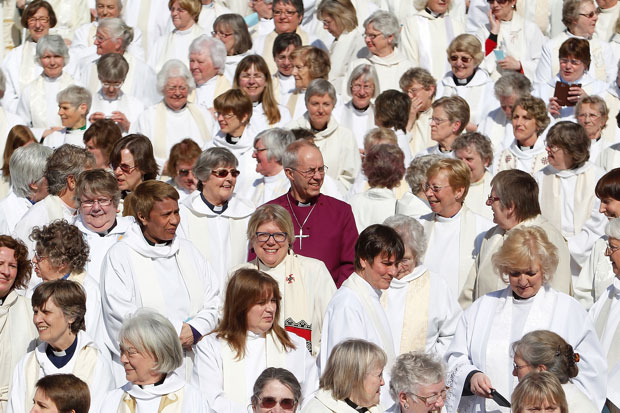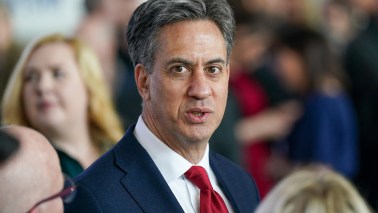Anglicans aren’t the sort of church-goers who set much store by miracles, signs and wonders. Yet their own church is one of the greatest miracles of our society: it has managed to hang together, in spite of raging differences, for centuries.
Since 14 July, that miracle has been under threat. For most, it was a great leap forward when the General Synod finally approved the ordination of women bishops. A delighted Archbishop of Canterbury was ‘grateful to God and to answered prayers’. David Cameron called it a ‘great day for the church and for equality’.
But one section of the church didn’t feel it was a great day. Members of the conservative evangelical movement, represented by a pressure group called Reform, had resisted this change for years. Reform was set up after the Church of England approved the ordination of women as priests in 1993. Before the vote on bishops, they and the remaining Anglo-Catholics had argued there was insufficient provision for those who still believed that the Bible does not permit women to lead in this way. The conservatives feared being forced to submit to a bishop whose authority they disputed. They lost the argument.
Next week Reform will hold a conference for its members to decide what happens next. And what does happen next will surely change the character of the Church of England, for better or worse.
By the time July’s vote rolled around, the conservatives just wanted an exemption from being led by a female bishop. They argued that if a woman was appointed in their diocese, those churches that are ‘complementarian’ (believe that men and women are equal in the sight of God but have different roles) could have a different spiritual leader. They failed to get this, but the declaration by the House of Bishops said it was dedicated to this particular group ‘flourishing’ in the Church of England, and will appoint a conservative evangelical bishop to ‘represent them’.









Comments
Join the debate for just £1 a month
Be part of the conversation with other Spectator readers by getting your first three months for £3.
UNLOCK ACCESS Just £1 a monthAlready a subscriber? Log in